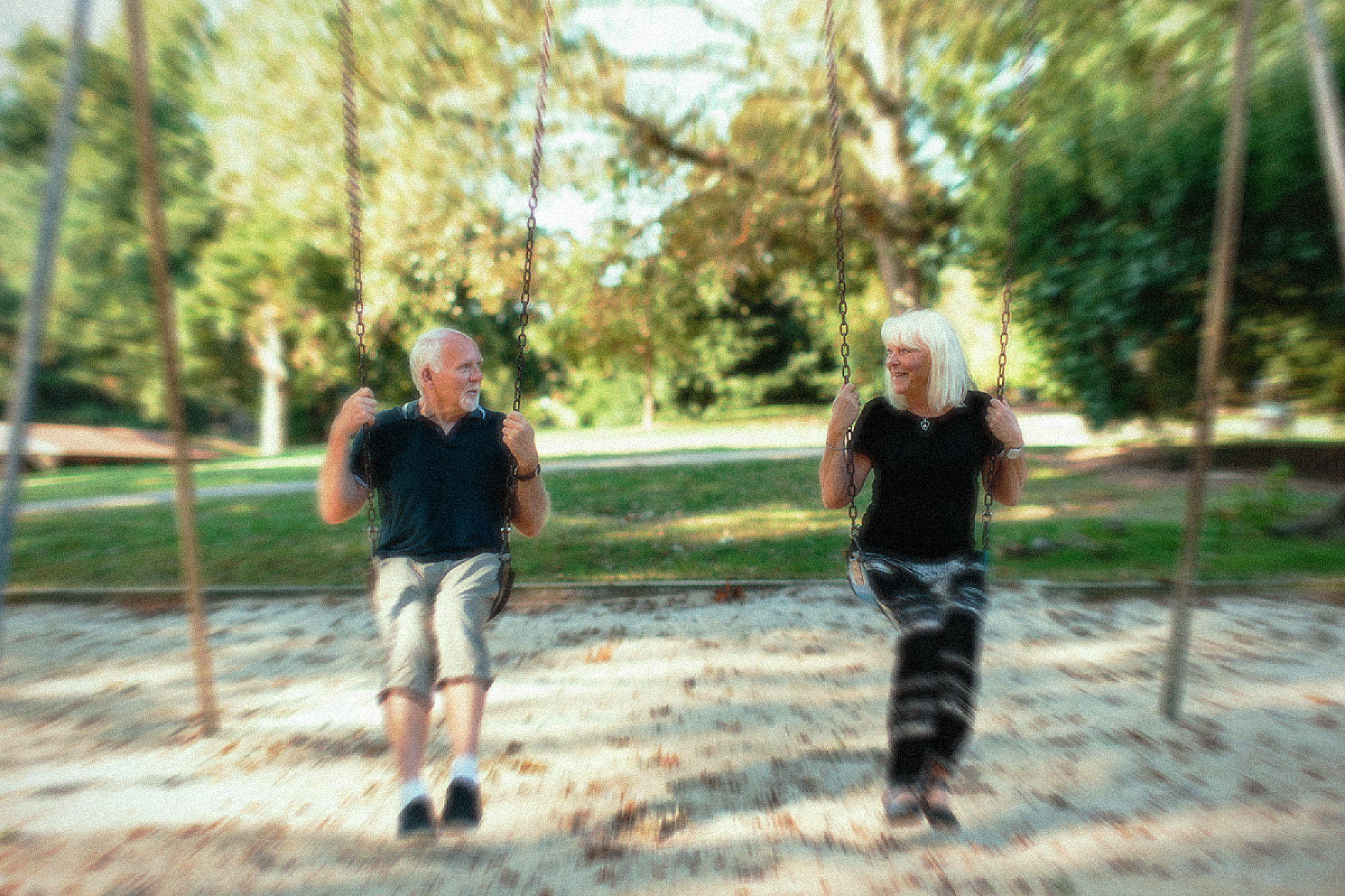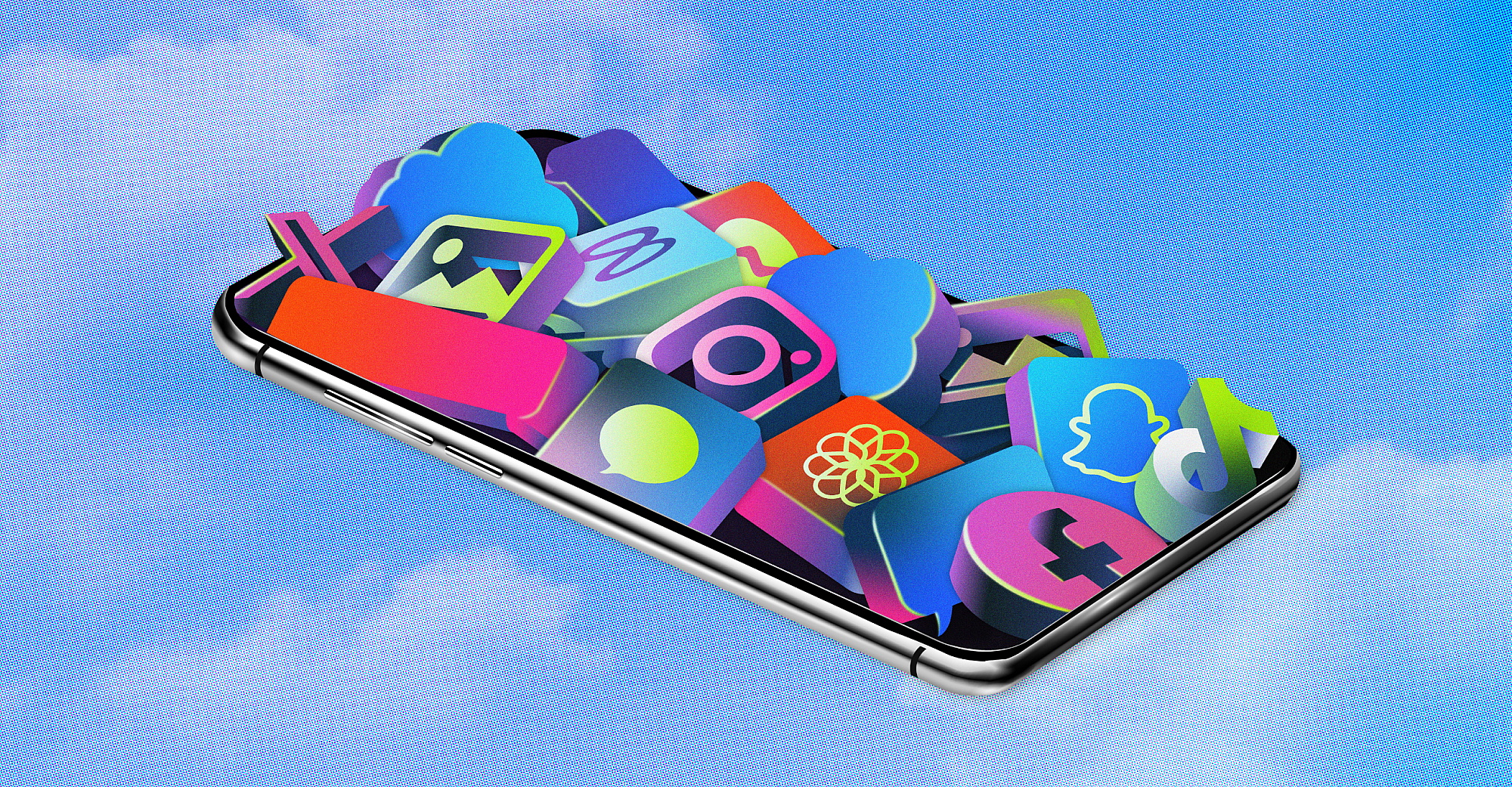Health Is Wealth: The State of Wellness in 2023

- Text Colleen Kelsey
- Design Emily Zhang
In a report published last year, McKinsey estimated that the spend on wellness products and services in the US clocked in at more than $450 billion, with a growth projection of more than five percent annually. The years of the pandemic have drastically shifted our approach to mental and physical care, work-life balance, mindfulness and even how we interact with our devices. And the business of wellness is booming. Gym memberships have become markers of exclusivity, supplement makers have added “mood balancing” fragrances to their line-up—and whether you’re squeezing in a five-minute meditation before work, emulating the TikTok “That Girl” trend or ready to depart for a sea retreat on the Goop cruise—Millennials and Gen Z are prioritizing looking for products that meet their ever-changing bespoke needs.
We brought together a group of Day One Agency members to discuss how they address all aspects of mental and physical health—and how brands and social media are influencing the larger conversation around wellness.
@olafflee grwm - that girl edition #cleangirl #aesthetic #OOTD #thatgirl ♬ smile





How do you define “wellness” in 2023?
It's about full self-knowledge and inner work. While the physical pieces of fitness and diet are important, it is about taking care of all parts of yourself (mind, body, spirit).
- Kelsey DeMarco, Senior Director, Creative Operations
Paige: Echoing the holistic piece! There's definitely been more of a shift towards mental wellness (versus just physical) in 2023.
Faith: Aka wellness is a feeling, not always drinking lemon water and trying to be the next “it girl” on TikTok.
What are your current biggest wellness concerns? Has that changed recently?
Faith: My biggest wellness concern at the moment is that it's quickly becoming diet culture messaging to young girls and boys, just with a different spin on it.
Paige: I'm seeing this too. Did we learn nothing from the early ‘00s and how damaging that was?
Caitlin: My biggest concern is the lack of legality behind calling something “healthy.” There are so many marketing/packaging tricks that companies pull. I also get concerned with influencers not having the appropriate education or licenses preaching stuff that they only partially understand. They mean well, but you don’t know what you don’t know at the same time.
This has always been a thing with wellness spaces on the internet, but I'm seeing a lot of it lately...There's almost too much information out there. It's hard for the average layperson to parse out what might work best for them and what's a healthy pursuit versus following the herd or a trend. It's so easy to go down rabbit holes and see content from people that are actually the opposite of wellness (anything from doing an inefficient workout to diet culture and the rabbit hole of “mental health diagnosis," TikTok).
- Paige Zidek, Director, Brand
Caitlin: I also get concerned with influencers not having the appropriate education or licenses preaching stuff that they only partially understand. They mean well, but you don’t know what you don’t know at the same time.
Where do you get your wellness news or advice? Are there any brands, resources, creators or platforms that you feel are driving conversation?
Marissa: I love Melissa Wood Health and Sami Clarke. They both have fitness platforms, but on their personal pages they share wellness practices and they are real, raw and show that wellness isn’t perfect all the time, like we all said. [It] isn’t just eating well and working out—it is much more than that internally.
Faith: I get a lot of my wellness news from my doctor (shoutout to Tia—love them!), advice from girlies on TikTok that label themselves as intuitive eaters and from chats with friends and family.
Paige: Depends. For benign things (like routine/productivity hacking, or product recs or meal inspo), social media and creators are still a major source for me. But if I have a serious question these days, I'm going straight to the experts and people whose job it is to know the information and keep up on this stuff. My trainer, my therapist, my doctor, etc. (Obviously I gotta acknowledge my privilege here and say that I'm super fortunate to have access to these types of things!)
Caitlin: I follow lots of functional medicine doctors and listen to their podcasts all the time. I have also recently discovered (along with many other American females lately) cycle syncing and have been all up in learning about women’s health from a fitness and nutrition standpoint. All that said, I think the wellness conversation is still lacking a lot of transparency.
How or where do you think the wellness conversation is falling short?
I would love the wellness world and the conversation around it to become more accessible to all bodies, races and genders.
- Faith Reynolds, Communications Apprentice
Kelsey: I think the wellness conversation is lacking on overall wellness. Each page or influencer is more narrowly focused on a niche (which makes sense), but how do we connect all the pieces? Also, how do we carve out that wellness is an individual journey and it will look differently to everyone?
Marissa: I think some things that are over-discussed, especially on TikTok, are “hacks.” People recommend pills and special drinks, but it is scary how people will take a pill or a vitamin that a “wellness girlie” told them to take that will make them “less bloated.” Gut health on TikTok is talked about way too much and most [sources] are not even credible.
Paige: Ugh, yes Marissa. Instead of the “quick fixes” that we used to hear about, everything is now labeled a “hack” and it's still missing the root issue that slow, consistent habit-building is the best way to achieve a goal over time. I still think that a ton of wellness conversations are rooted in privilege and don't take into account the average person's situation and means. I will fully admit that I spend too much money on fitness/wellness stuff and the average person can't do that. So, how do we meet them where they're at and empower them to be well without buying a ton of stuff?
@jazturner16 Yall see this new body 👀 #guthealth #leakygut #bloating #hotyoga #pilates #fitnesstiktok #detoxdrink #chlorophyllwater ♬ Aesthetic - Tollan Kim
Are there any trends that have resonated with you that have differed from wellness trends in the past?
Kelsey: The growth of seeing a wider range of bodies and what is human feels good to me.
Paige: I love the diversity that I have been seeing and I'm hoping that doesn't go away with the pendulum shift back to thin, diet culture ideals…
Let’s talk about money. Is wellness something you prioritize spending on? What parts of your wellness “routine” are non-negotiable?
100% when it comes to wellness I will spend top dollar. Because honestly your health is the only thing that actually matters at the end of the day.
- Caitlin Donatini, Associate Director, Digital Strategy
Kelsey: Meditation and journaling are non-negotiable for me. My dedication to spending money on gym memberships and studios varies.
Caitlin: Routine-wise, morning movement is non-negotiable. Whether it’s a long walk, lifting, yoga, mobility, whatever—I always move in the morning. And I’ll always make sure I am feeding myself good food.
Faith: I think even having a “wellness budget” is such a luxury and privilege. But that being said, investing in therapy or getting a massage is sooo good for your physical and mental health that I personally believe it's worth doing. I definitely have to make these things work for my own budget, though.
Paige: [I] definitely prioritize it. I see it as investing in myself now, so I'm not having to spend a ton to correct things down the line. Honestly, there's so many blueprints out there for leaving your health and wellness (both physical and mental) unchecked and the problems it leads to....[I] don't want to get to that point. For me, some kind of movement that I enjoy and therapy are non-negotiables, both from a financial and a time perspective.
Brands are offering a variety of products and services tailored to wellness concerns: Take, for example, the Nue Co.’s “functional fragrances”—scents designed to impact your emotional state—or Ness, a credit card that offers rewards for health and wellness expenditures rather than travel. Do you find products like this appealing?
Paige: I think that a new health-focused product or brand would be appealing to me if it fits into current goals that I already have, or activities that I already do. I don't really seek out new health-focused products unless I'm on the hunt for something specific (like protein powders or new workout gear or a meditation app to try). I liked the Ness example because it doesn't cause the consumer to have to buy or try something new. Instead, you're getting rewarded if you're buying a routine wellness purchase.
Faith: I find this interesting and a step in the right direction. But it seems like the wellness trend is sometimes glamorizing those who struggle with their mental health.
Kelsey: I am more drawn to products similar to the functional fragrance or items that go beyond just the physical part of health. For some reason, it feels easier to benefit off of the physical part than when a brand gets into more functional “mental” space. That may be because full self-care is a new thing for a lot of us.
Paige: I'm also personally skeptical of any product that offers “functional” anything, but that's just because I can rarely remove my marketing hat.
When I come across any new product, I’m always interested in the ingredient label and the actual science behind what that product is claiming to do. I think 'functional health' is becoming a bit of a buzzword and there are a lot of products out there pushing 'health' irresponsibly.
- Caitlin Donatini, Associate Director, Digital Strategy
I’m also curious what the larger group thinks about the credit card. Would getting rewards for spending on a gym membership or supplements be more appealing than earning travel or restaurant points?
Kelsey: Travel points to me are vital, but that is based on my priorities and exploration is a key driver to my overall well-being. However, with that said, I think a brand that also offers those types of perks and diversifies their offerings to a larger spectrum of items is great.
Caitlin: I like the idea, but I am also pretty married to my travel cards and racking points on that. If I wasn’t already so far into the travel card game, I’d probably be more open to a fitness rewards card.
Faith: Honestly, I think if it had rewards for more general wellness things such as getting your nails done, gym membership or spa treatments... that attracts me more than restaurants.
What services or products, if any, would you like to see from brands in the health + wellness space?
Faith: I would just really like to see more authenticity or evidence that these products improve someone’s life and aren't just a waste of their money.



